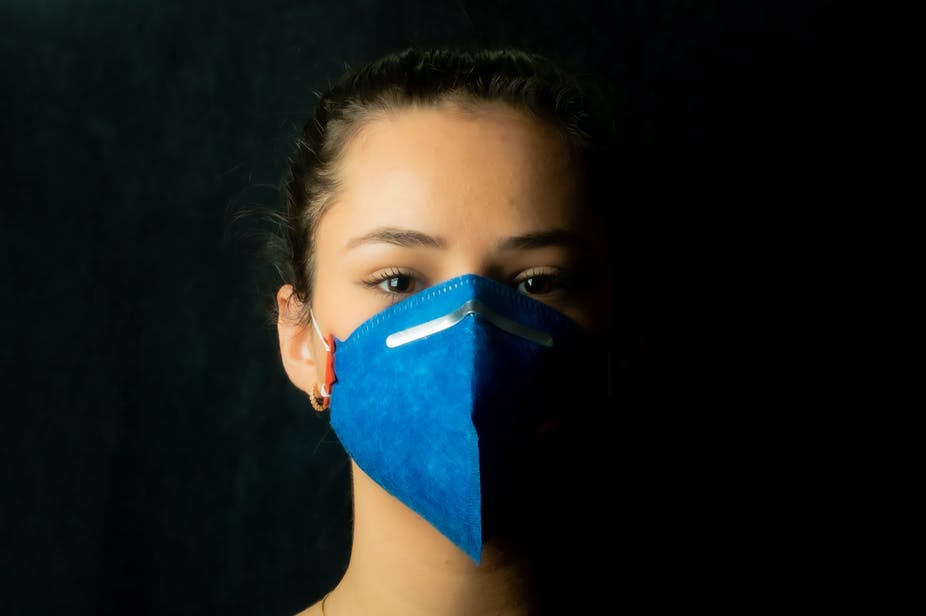Yeva Aleksanyan, Colorado State University and Jason Weinman, University of Colorado Anschutz Medical Campus
Pandemics and recessions have the potential to exacerbate existing health inequalities between men and women.
Many social factors can put women at a higher risk of infection during a pandemic. In almost all societies, women assume the role of primary caregiver when family members fall ill. They are also more likely to be front-line health care workers.
Despite this increased exposure to infection, the Ebola and Zika outbreaks highlighted how women are more likely to experience unequal access to resources and health care, and have limited decision-making power about their own health and finances.
COVID-19 is no different. We are researchers in economics and health, and our recent study found that COVID-19 cases and deaths among women may be underreported in countries with higher gender discrimination.

Mazen Mahdi/AFP via Getty Images
Gender differences in COVID-19 rates
To investigate the effect of the COVID-19 pandemic on gender-based health disparities, we examined male and female COVID-19 case and death rates across 133 countries from 2020 to 2021. We used data from Global Health 50/50, an organization that tracks COVID-19 cases and deaths by gender worldwide.
We found that most countries, such as the United States, Netherlands, France, Ukraine and Armenia, report roughly equal or slightly higher female infection rates. But 14% of the countries we examined reported over 65% of their COVID-19 cases and deaths were among men. For instance, 88% and 85% of confirmed COVID-19 cases in Bahrain and Qatar, respectively, were among men. Similarly, over 74% of total COVID-19 deaths in Chad, Bangladesh, Malawi and Pakistan were among men.
But what caused these rate differences across countries? We considered both biological factors, like gender differences in healthy life expectancy and death rates from chronic and infectious diseases, and social factors, like employment rates and gender norms. We assessed gender norms using publicly available indices measuring how countries are performing in women’s peace and security, financial inclusion, access to resources and status in the family household.
We found that biological differences, which should result in more consistent case and death rates across locations, couldn’t account for these trends alone. Instead, social factors like higher gender discrimination within the family and limited access to wealth and education were significantly associated with larger differences in male and female COVID-19 case and death rates.
Accounting for gender in health
Gender norms play a role in what opportunities and resources are available for different people. Women often fall through the cracks of the health care system due to gender bias and their poorer socioeconomic status. In many developing countries, women resort to informal, unlicensed health care providers and low-cost medicines, while men spend a greater share of family resources on their own health needs. And in some parts of the world, a woman’s husband or father must provide consent before she can obtain health care treatment.
When women have less independence and decision-making power over their lives, they need to rely on their family members to access health care. In societies where women are devalued and do not have decision-making power, a household may prioritize spending their resources on men’s COVID-19 testing and hospital stays. Thus, we hypothesize that countries are reporting higher male COVID-19 cases and deaths due to underreporting of women’s cases and deaths.

Xinhua News Agency via Getty Images
This underreporting extends in other areas as well. For example, our data source does not account for transgender and nonbinary people. And country-level data on gender differences in medical access for other diseases and treatments is also unavailable. The World Health Organization’s European office has urged countries to collect gender data through their health information systems. While efforts have been made to improve data collection across health care systems globally, collecting reliable data remains challenging.
Though our findings do show a strong association between gender norms and COVID-19 health disparities, they do not prove causation as a controlled experiment would. Such studies, however, are not possible during a pandemic. And results may vary regionally due to cultural and social differences. One recent study, for example, found that more men in the U.S. die from COVID-19 than women because they are less likely to follow mask and social distancing guidelines.
Despite these limitations, it is clear that social factors play a role in COVID-19 health outcomes. Ignoring gender bias in health care has the potential to exacerbate long-standing inequities that existed prior to the pandemic.
[Get the best of The Conversation, every weekend. Sign up for our weekly newsletter.]
Yeva Aleksanyan, Ph.D. Candidate in Economics, Colorado State University and Jason Weinman, Associate Professor of Radiology, University of Colorado Anschutz Medical Campus
This article is republished from The Conversation under a Creative Commons license. Read the original article.















